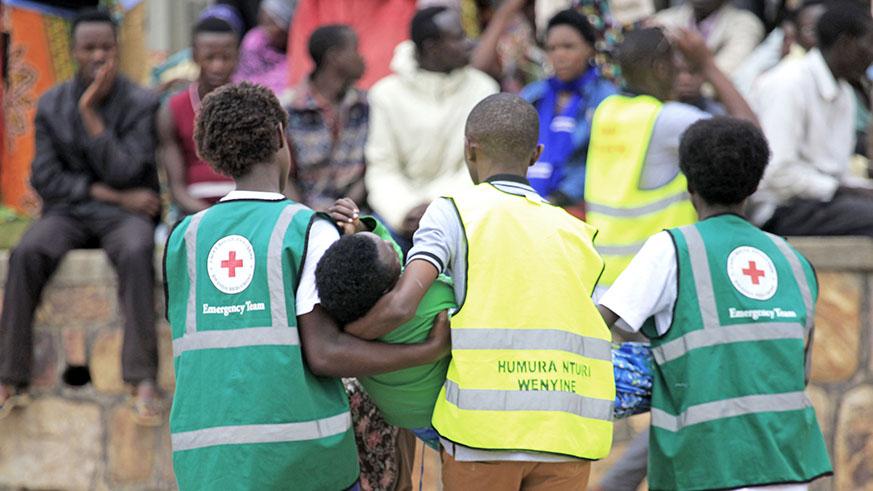
CNLG appeals for effective remedies for trauma among genocide survivors
By Emmanuel Ntirenganya, The New Times
Trauma among genocide survivors is high and urgent response is needed to help the affected recover from it, the Executive Secretary of CNLG (National Commission for the Fight against Genocide) has appealed.
Jean-Damascène Bizimana made the revelation on Friday, while speaking at a panel session themed “Preserving Memory: Upholding our Values,” during the 16th National Dialogue ‘Umushyikirano’ held in Kigali this December, 2018.
Trauma is a severe emotional or mental distress caused by a deeply distressing or life-threatening event; in this case, loss of loved one(s) during genocide or related cases such as rape.
Over 1 million people were killed in during just a three-month period during the 1994 genocide against the Tutsi, leaving survivors in horror and grief-stricken.
Bizimana said that a study carried out by the Ministry of Health in partnership with CNLG, whose research findings were released on December 6, 2018, revealed that trauma among genocide survivors was at 27.9 percent, a situation which he said calls for stringent measures to be addressed.
The trauma, he said, is slightly higher among male survivors than their female counterparts as it is 28 percent and 27 percent respectively among the two categories of people.
For survivors aged between 24 and 30 – or those who were babies and children during the genocide – the trauma rate is lower, standing at 18 percent.
The level is higher among survivors aged above 35 years, as about 32 percent of them suffer from trauma, Bizimana said explaining that such rise “is understandable because they were older during the genocide and they experienced its effects, then.”
On the aspect of finding remedy to such a stressful experience, Bizimana said that some survivors seek support from health facilities or practitioners, but, expressed concern that 40 percent of the survivors suffering from trauma resort to churches and prayers hoping to get counseling, while 29.6 percent go to traditional healers for help.
“I accept that churches and prayers can help [with this condition], but, it is impossible that they can solve a health issue,” he said
“That representation shows us where institutions should continue putting efforts to build people’s awareness about that issue, and get a remedy so that we overcome it,” he said adding that the Ministry of Health should disseminate the research findings so that institutions devise concerted efforts to tackle the problem.
Geraldine Umutesi, Deputy Director General at Imbuto Foundation said that the major challenge that remains 25 years after the genocide, is trauma that is recurrent among survivors.
Umutesi, who is a genocide survivor, and member of GAERG – an association of Rwandan Graduate Genocide Survivors, observed that 35 percent of the genocide survivors experiencing trauma, have major depressive disorder – a serious mood disorder that affects how a person feels, think, and handles daily activities, such as sleeping, eating, or working.
Also, 27 percent of those having trauma experience post-traumatic stress disorder (PTSD) – a mental health condition that is triggered by a terrifying event — either experiencing it or witnessing it, whose symptoms may include vivid memories, nightmares and severe anxiety, as well as uncontrollable thoughts about the event.
She added that 26 percent of them have overwhelming fear.
Despite the gravity of the problem, Umutesi said that organisations that support genocide survivors can develop another solution to it.
“Even if those people are many, we can create a remedy that can complement with the services offered at health facilities; we need community healing,” she said.
“Trauma cannot be effectively treated from health facilities. It needs an integrated approach which can help the affected individual recover from it,” she indicated.
